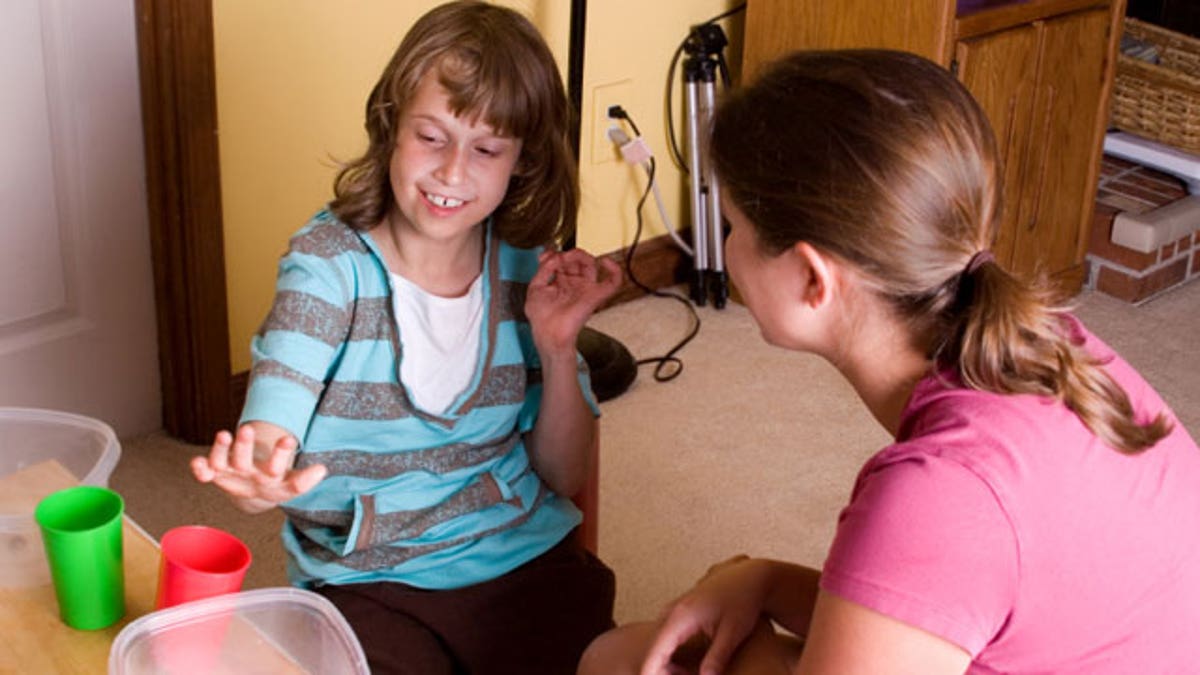
One of the most agonizing questions that parents of children with autism ask is—why? Now, a growing number of genetic tests are providing some answers.
Scientists say that roughly 20 percent of autism cases can be linked to known genetic abnormalities, and many more may be discovered.
Pinpointing a genetic explanation can help predict whether siblings are likely to have the disorder—and even point to new, targeted treatments. Last week, for example, researchers reported that an experimental drug, arbaclofen, reduced social withdrawal and challenging behaviors in children and adults with Fragile X syndrome, the single most common genetic cause of autism.
Related: Experimental drug to treat Fragile X syndrome shows promise
No single blood test or brain scan can diagnose autism spectrum disorders—in part because environmental factors also play a major role. But once a child is diagnosed, on the basis of symptoms and behavioral tests, researchers can work backward looking for genetic causes.
Both the American Academy of Pediatrics and the American College of Medical Genetics recommend that all children diagnosed with ASD be tested for Fragile X Syndrome and other chromosome abnormalities. The newest tests, called chromosomal microanalysis, can identify submicroscopic deletions or duplications in DNA sequences known to be associated with autism. Together, these tests find genetic explanations for more than 10 percent of autism cases.
Experts estimate that 400 to 1,000 individual genes may play a role in the complex neurological issues involved in autism. Tests are proliferating that look for mutations in some of those genes, thanks to new technologies that let scientists sequence many genes at once.
Mount Sinai School of Medicine in New York City, for example, is offering a new blood test that examines 30 different genes for mutations known to be associated with autism or other developmental delays.
Some autism-related genetic disorders also carry a high risk of cancer, seizures, heart disease or other health problems, so knowing about them allows families and physicians to be vigilant for such issues.
Identifying genetic causes can also help families find support groups, research programs and potential treatments tailored to their child's specific needs. For example, one of the abnormalities Mount Sinai tests for is the SHANK3 mutation on chromosome 22. It causes an autism-spectrum disorder and Phelan-McDermid Syndrome, in which communication between nerve cells is disrupted, impairing learning and memory. Researchers at Mount Sinai found that an insulin-like growth factor could reverse that disruption in mice and are now testing it in children aged 5 to 17 with SHANK3 mutations.
If a genetic mutation is found, researchers can also test the parents' DNA to see if the problem was inherited or if it occurred spontaneously, in which case the risk of having another child with autism is no greater than in the general population.
Another possible outcome: The test could find no abnormalities in those 30 genes—or find "variations of unknown significance." That would mean "we aren't certain what it means, but we may know more in the future—and at least this will be in the patient's records," says Lisa Edelmann, director of the genetic testing lab at Mount Sinai.
Several other academic medical centers offer their own gene-sequencing tests for autism, looking at different suspect genes. The tests typically cost about $2,000 and generally are covered by insurance.
Other kinds of genetic tests may predict the likelihood that a child will develop autism before a clinical diagnosis is made.
Researchers at the University of Melbourne, Australia, have developed a test that looks for 237 genetic markers called single-nucleotide polymorphisms (SNPs). Some are thought to raise the risk of autism; others seem to protect against it. The test correctly predicted autism with more than 70 percent accuracy in people of Central European descent, but only 54 percent in those of Chinese descent, according to a study in the journal Molecular Psychiatry this month.
The goal of such tests, says IntegraGen general manager Larry Yost, is to have children at very high risk for autism referred to specialists for a definitive diagnosis earlier. Studies show that early intervention can signifcantly improve a child's IQ, language ability and social skills. But many children aren't diagnosed until after age 4, according to the CDC.








































